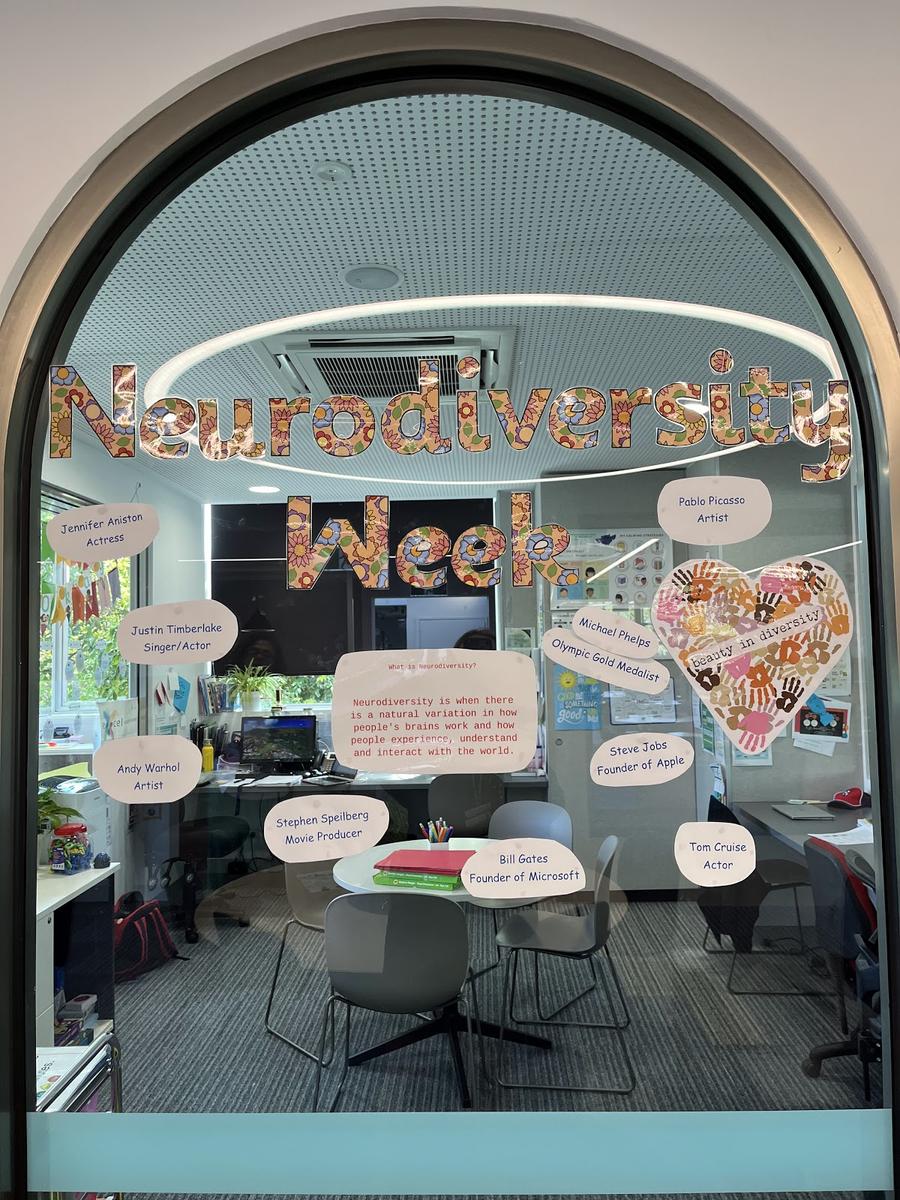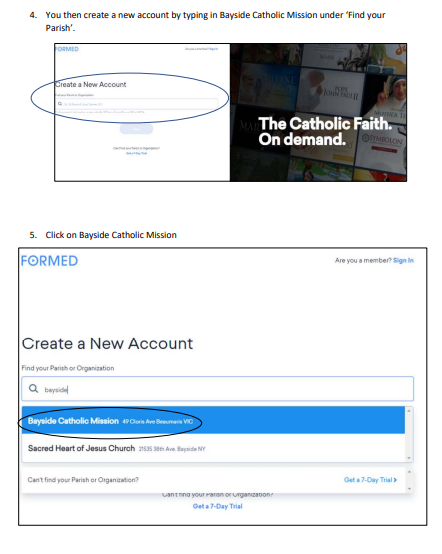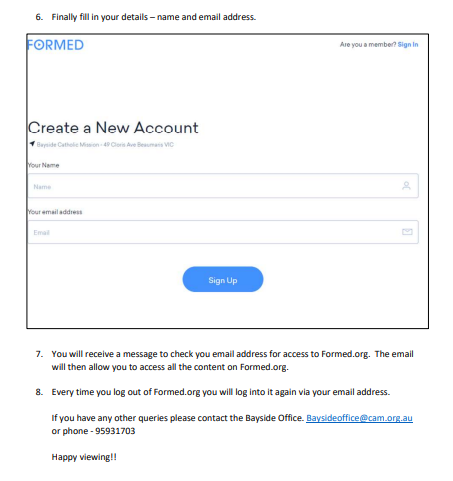Faith & Wellbeing

WELLBEING
Neurodiversity Week
Neurodiversity Week was celebrated at St James between the 13th and 19th March. During this week students learnt the following:
- What neurodiversity is
- That everyone is unique and different
- We all have different strengths
- Famous people who are neurodivergent. For example Daniel Radcliffe and Billie Eilish.
Students worked through presentations on Neurodiversity, read stories about what it means to be neurodivergent and some did research tasks on different types of neurodiversity.
Harmony Day
Thank-you to all of our families who took part in dressing up for Harmony Day on Tuesday 21st March. Harmony Day is all about loving and understanding different cultures and ways of life, and seeing how they can fit together. You may be surprised by what other cultures have to teach you! It was wonderful to see how many different cultures make up our community at St James.
Conversations with Kids!
I love picking my kids up from school when I get the chance or asking them about their day around the dinner table. I want to know everything. Unfortunately the information that I would like to hear is not always forthcoming. Sometimes it comes out when we are at the busiest time of the day cooking dinner, packing lunches, driving between after school activities or even at bedtime. So how do we get information from our children about their day? If you have time make yourself a cup of tea and read below. Hopefully you may take something away from the below article.
Small Talk: How to get your child to talk about their day.
Sometimes you get "good," "fine," or the conversation killer, "I don't remember" when you ask your child about their day. Take comfort in the fact that they are not giving you the cold shoulder on purpose. But if you know why your child clams up and if you have some tactics to help them organize their thoughts, you'll be well on your way to getting the need-to-know scoop.
Conversation Stopper: Information Overload
A million things, great and small, have happened since your child got on the school bus, so when you ask "What happened today?" they may be overwhelmed. Should they tell you about the fire drill? The weird smell in the lunchroom? How they scored 100 on the spelling test? "They know what kind of information you want, so they truly draw a blank," says Adam Cox, Ph.D., author of Boys of Few Words: Raising Our Sons to Communicate and Connect.
Talking Points: By asking specific questions like, "Who did you play with at recess?" or "Who did you sit next to at lunch?" you'll begin teaching your child how to scroll back in time and make stories out of their experiences, explains Dawn Huebner, Ph.D., psychologist and author of the What-to-Do Guides for Kids series. You'll also be giving them a better idea of the kind of things you're interested in knowing. If you want lively answers, ask fun questions: Best/Worst or Coolest/Most Uncool thing that happened is engaging, and it provides another way to help kids share the day's events.
Conversation Stopper: Tough Transitions
Your child is straddling two worlds. "For a good part of the day they are responsible for themself and navigates complex situations without your help," says Gretchen Barber-Lindstrom, a Phoenix-based social worker. Then, suddenly, they are back home where they can let their guard down and be a little kid again. "It can be hard to switch gears," says Barber-Lindstrom. They might find it overwhelming to sort out the emotions of the day.
Talking Points: Let them have some time to decompress after school. Give them a snack and some downtime before you ask about their day. "Take cues from your child," says Dr. Huebner. "If your specific questions unleash an eager flood of details, keep them coming. If they're met with one-word responses, assume they need more time to chill out." Kick off the conversation by talking about your day—sharing your experiences will teach your child to communicate by example.
Conversation Stopper: Location
The dinner table has long been considered an ideal place for parents to chat with their little ones about their day. But sitting face-to-face can make some children shut down. “Kids tend to open up a little bit more when there’s not a direct eye contact,” says Megan A. Mooney, Ph.D., a licensed psychologist and president elect at the Texas Psychological Association in Cedar Park, Texas. Sitting in the backseat of a car can take the pressure off. (And between school drop off and pick up and your kid’s growing list of extracurricular activities, you probably spend much of your day driving them around anyway!)
Another plus? “There are less distractions in the car because parents are just focused on the road and the kids,” says Sean Nixon, a pediatric mental health therapist based in Boise, Idaho, and incoming board member for the Association for Child and Adolescent Counseling. That means driving parents tend to listen more, creating space for “a friendly family conversation.”
Talking Points: Getting children to spill details after a long day of school isn’t always an easy task—no matter where they are. But Nixon also recommends parents get creative when it comes to their questions. He has four go-to conversation starters: “Tell me about something that made you laugh today;” “Tell me about something that you felt sad about today;” “Tell me about something that you were frustrated about today;” and “Tell me about something that you learned today.”
And if conversation still isn’t flowing, turn on the music, says Dr. Mooney. “Engage in conversation around your child’s favorite artist or song and try to open up the lines of communication that way,” she adds.
Conversation Stopper: Performance Anxiety
"Once your child enters first grade, they are aware that you're paying attention to how they are learning and getting along with others. They know they are being watched and feel pressure to perform," says Gene Beresin, M.D., professor of psychiatry at Harvard Medical School. This feeling of being judged can keep a child from wanting to share details about their day.
Talking Points: Try playing a game or reading together, and see what topics naturally arise. "Sometimes we try to get information too fast," says Dr. Cox. Doing an activity together can help them feel less guarded. Telling you that they didn't know an answer when they were called on in class is much easier when they're feeling close to you. Withhold judgment. If your child feels it isn't safe for them to share the low points in their day, they will shut down.
Conversation Stopper: Short Memory
At this age, your child is actively increasing their "working memory"—the process used for temporarily storing and manipulating information. They have limited ability to recall the day's events at a later time. Working memory grows over time, faster for some than for others.
Talking Points: Chat to other parents and stay in contact with your child's teacher so you'll be able to offer prompts such as: "Who was the mystery reader today?" Asking questions—even if you already know the answer—will help teach the art of the recap. Also, your child may not yet have a finely tuned emotional language, so opening up about things they felt during the day can be difficult. "Children usually respond to their feelings through action, because they can't always identify the feeling," says Michelle Maidenberg, Ph.D., the clinical director of Westchester Group Works, a center for group therapy. You can help build their emotional vocabulary by using words like excitement, anger, fatigue, worry, or frustration when you're talking about their behavior so they begin to see that there's a connection.
Why You Should Stop Solving Your Child's Problems
When your child is facing a challenge, of course you want to swoop in and save the day. But keep in mind that at school your kid is figuring things out for themself all day long. If you give your child solutions, you'll make them less resourceful. They will think, "If they aren't like Mum's and Dad's, my ideas must be wrong."
Helping children solve problems for themselves, on the other hand, is empowering. "When you facilitate instead of taking over, you're subliminally increasing your child's confidence," says Dr. Maidenberg. Ask questions like, "What do you think your options are?" or "What are you most comfortable doing?" If your child believes they figured things out themself, it will be a self-confidence booster. When your child walks away from a conversation with positive feelings they will come back to talk to you again and again.
Are You Too Intrusive?
Even a 6-year-old needs some space. Follow these tips to walk the fine line between involved and intrusive.
Do allow your child to say he just doesn't feel like talking, but don't let him get away with ignoring you. Try to discuss why he's uncomfortable about a particular subject.
Don't barrage your child with questions if you notice they are getting anxious or seem distressed. "Kids shouldn't be put on the spot. If they sense you're prying, you need to back off," says Dr. Beresin.
Do ask your child if they would like to talk about something later in the day, but don't argue with them if they say no. Respect their decision to keep some things to themself.
Don't bring up information you hear from secondhand sources unless it concerns your child's well-being. "When it involves health, safety, or respect for others, there's just no compromise. You have to talk about it even if your kid doesn't want to," says Dr. Maidenberg.
Mrs Georgia McNamara
Students Wellbeing Leader
RELIGIOUS EDUCATION
Project Compassion - For All Future Generations
We are in the final weeks of raising money for Project Compassion and we encourage students to continue to bring in money to add to the Project Compassion boxes in their classrooms.
Next Thursday, the 30th of March, the Year 6 students will be putting on an Easter Egg Hunt for the students in Prep to Year 6. Students need to bring in a gold coin donation to take part.
Sacrament of Reconciliation
On Wednesday the Year 3 students will be celebrating the Sacrament of Reconciliation. We will begin with a Liturgy in the Hall beginning at 12pm, followed by the students receiving the sacrament out in the Tilley Garden (weather permitting). Please keep the Year 3 students in your prayers.
Holy Week Liturgies
Next Sunday, April 2nd marks the beginning of Holy Week with the celebration of Palm Sunday. Starting next Friday, the 31st of March, each class will be sharing one of the stories of Holy Week. Please find the timetable below and we warmly invite families to join us.
SECONDARY ENROLMENTS
If there are any parents that require dates or a letter confirming sacraments, please email eherbert@stjamesbrighton.catholic.edu.au and I will be able to provide that information for you.
Important Dates
March
Wednesday 29th - Sacrament of Reconciliation, 12pm in the Hall
Friday 31st - Palm Sunday Liturgy, 3:15pm
April
Monday 3rd - Holy Thursday Liturgy, 3:10pm
Wednesday 5th - Good Friday Liturgy, 3:00pm
Thursday 6th - Easter Saturday and Sunday Liturgy, 12:50pm
Future dates
July
Tuesday 25th - Year 4 First Communion Reflection Evening @ 5:30pm
August
Thursday 10th - Year 4 First Communion Reflection Day
Wednesday 16th - First Communion @ 6pm, St Joan of Arc
October
Tuesday 10th - Year 6 Confirmation Reflection Evening @ 5:30pm
November
Thursday 9th - Year 6 Confirmation Reflection Day
Friday 17th - Sacrament of Confirmation @ 5pm, St Joan of Arc
Emma Herbert
RE Leader / Sustainability / Learning Diversity Leader
eherbert@stjamesbrighton.catholic.edu.au
How to Sign up for Formed.org as a parishioner of Bayside Catholic Mission
For Parish Newsletters, please refer to the new Parish Website







